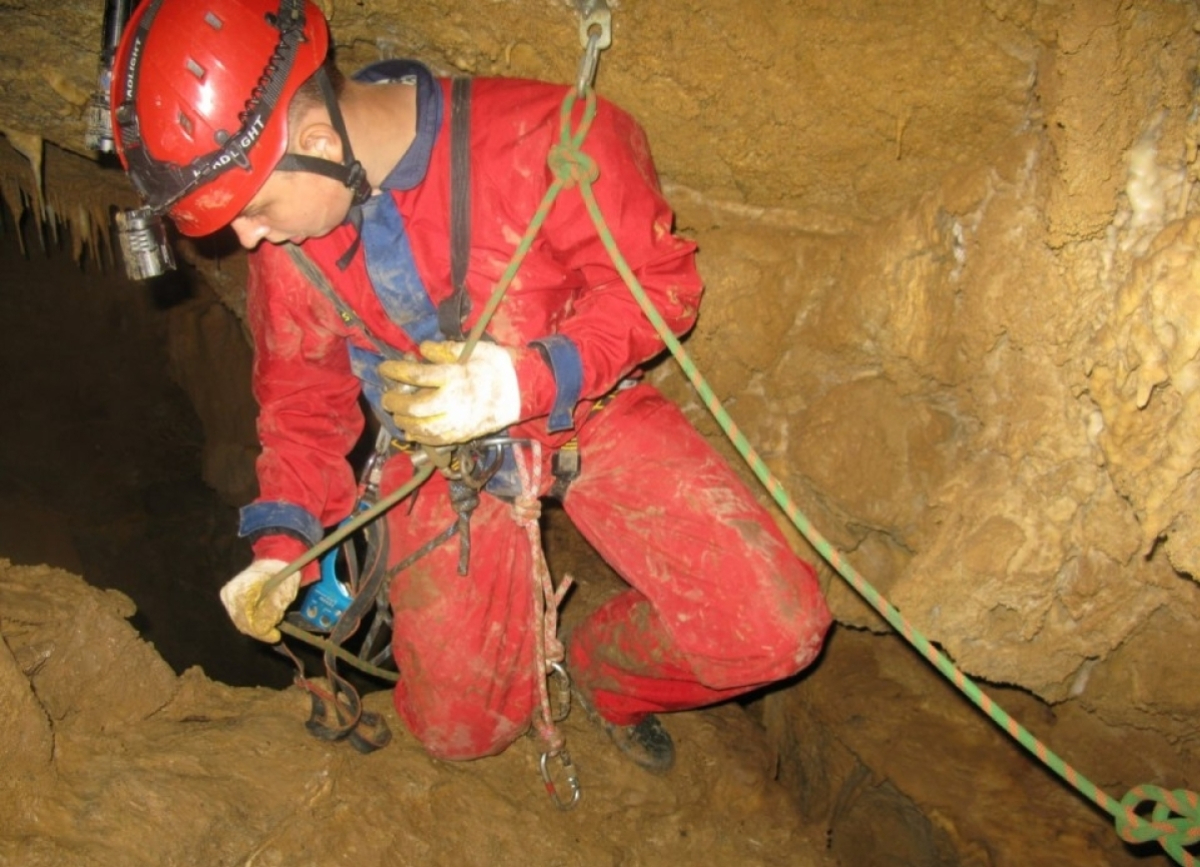Speleologists Discover Deep-Sea Cave in Abkhazia’s Blue Lake

SUKHUM / AQW'A ― In a series of exciting discoveries, speleologists have unearthed a deep-sea cave in the Blue Lake of Abkhazia, and scientists have pinpointed the source of the world's shortest river, also located within the country's borders.
Deep-Sea Cave in Blue Lake
During a May expedition to Abkhazia, a team of speleologists led by Gennady Samokhin, chairman of the Russian Geographical Society's Crimean branch, discovered an extraordinary cave in the depths of the Blue Lake. This unique cave-spring, a popular tourist attraction in Abkhazia, boasts a depth of 49 metres. The expedition's primary objective was to determine the cave's maximum depth by measuring the elevation difference between its entrance and exit. With the assistance of a geodesist, the team was able to obtain precise measurements, revealing a preliminary depth estimate of 2,200 metres.
This scientific expedition, supported by the State Committee for Ecology and Nature Protection of the Republic of Abkhazia, aimed to identify underground karst aquifer systems for regional water supply and investigate the morphological characteristics of caves.
Source of the World's Shortest River
In another remarkable discovery, Crimean scientists uncovered five caves in the Gagra district of Abkhazia during the same expedition. Two of these caves were found to harbour underground rivers. The caves, currently assigned sequential numbers, share the common name "Dzharnaz" with the nearest settlement.
Scientists have already approached the Abkhazian authorities to ensure that the toponymy aligns with the country's traditions. One of the discovered caves, approximately 70 metres deep and 300 metres long, required manual excavation to reveal its entrances. Towards the expedition's conclusion, the team unearthed a cave adorned with stunning stalactite formations. However, due to the challenging terrain, this particular cave will not be accessible for tourist excursions.
The first four of the world's deepest caves are located in Abkhazia.
+ Nine new caves have been discovered in Abkhazia
+ Abkhazia's New Caves and the Journey of Naming
+ Otherworldly Abkhazia cave
To determine the exact identity of the underground river, scientists conducted a dye-tracing experiment in two of the caves. The analysis of these "traps" will be carried out at the Crimean Federal University.
"This data will help us understand which specific underground river we have discovered," explained Samokhin. "There are around six such rivers in this area, and we are attempting to enter one of the largest. We have already found tributaries of the river, which can lead us to the larger river itself, which has a discharge of three tons of water per second, twice that of the Crimean Salgir River. We have managed to locate its source, also known as Reprua, which is described as the shortest river in the world. We are aiming to reach its underground section."
Samokhin further highlighted that the water in this underground river flows deep beneath the surface, at a depth of 2.5 kilometres, and emerges as a spring on the coastline. The scientists' goal is not to reach the center of the river's karst massif but rather its outlet into the sea.

"Back in 1912, Alexander Kruber (1871-1941), the founder of Russian karstology who studied the mountains of the Greater Caucasus and Crimea, described a cave that we are now trying to locate," Samokhin remarked. "This is significant not only for scientific research but also for understanding the workings of Abkhazia's underground hydrogeological systems."
These remarkable discoveries underscore the rich and unexplored natural wonders of Abkhazia, highlighting the country's potential for further scientific exploration and sustainable tourism development.